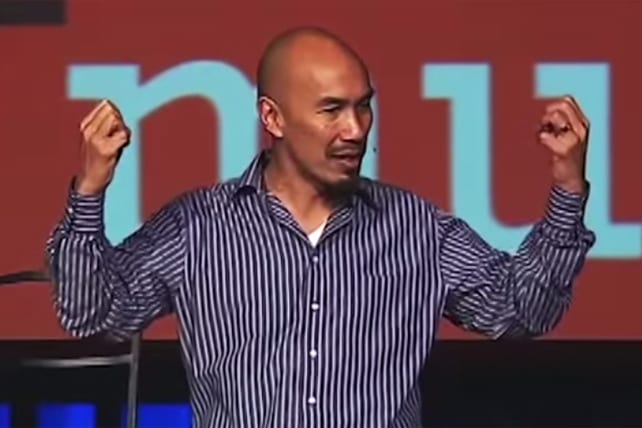Francis Chan proposes the flattery and criticism popular Christian leaders face contribute unbearable pressure that will eventually bring a leader down.
“I don’t know how someone, who like me, can draw a crowd from speaking and stay humble with that type of attention and that many people flattering you. And I also don’t know how I guy like me can keep from killing himself with that much criticism and the depression that comes with that.”
In the following 31-minute video (recorded at Thrive Conference 2013), Chan speaks about how the unexpected success of “Crazy Love” affected him. Flattery and criticism were two things he struggled to deal with on a scale previously unknown. The situation caused him to put some serious thought into the problem with the trend of megachurches and the future of the Church.
What’s the goal of ministry?
Chan reminds us that the goal of every pastor and leader should be to make disciples—specifically to make disciple-makers. The measure of whether or not your ministry is succeeding should be based around the goal of reaching the unreached and training them to be disciple-makers. We need to ask ourselves, as Chan so pointedly does, “Am I just gathering a bunch of people in a room and making them dependent on me?”
The megachurch can’t be the goal of the future
While Chan is not trying to be critical of the megachurch, admitting there are some doing a lot of good and making disciples, he sees a problem if the church as a whole makes this model its goal.
First of all, Chan doesn’t see how the megachurch pastor could hold up under the aforementioned pressures of flattery and criticism, especially moving forward into the future.
“I think people have survived to a point because of how we were raised in ministry,” he explains. Under the old model of pastor-raising, Chan points out, people were not given the chance to speak right away. They would do everything else—from stacking chairs to discipling high school boys to cleaning bathrooms—before they were put in front of an audience. Now, however, because of the internet, people get a platform more quickly and much easier than pastors of old. Are these leaders “going to have the character and humility to pull it off?” Chan asks.
The solution: simplify and think like a parent
Looking to the future, we need to simplify. “Is it going to be more and more about just training your people to create their own gatherings, even, and raise up leaders?” Chan asks a question of practicality: If we could pastor 15-20 people for free and still be able to work a normal job, but 100 people takes money, then why not do 5 gatherings of 15-20?
Chan offers the mindset of a pastor should be similar to one of a parent equipping his or her children to live on their own. A pastor should be doing something similar by intentionally equipping his or her congregants to go and make disciples on their own.












